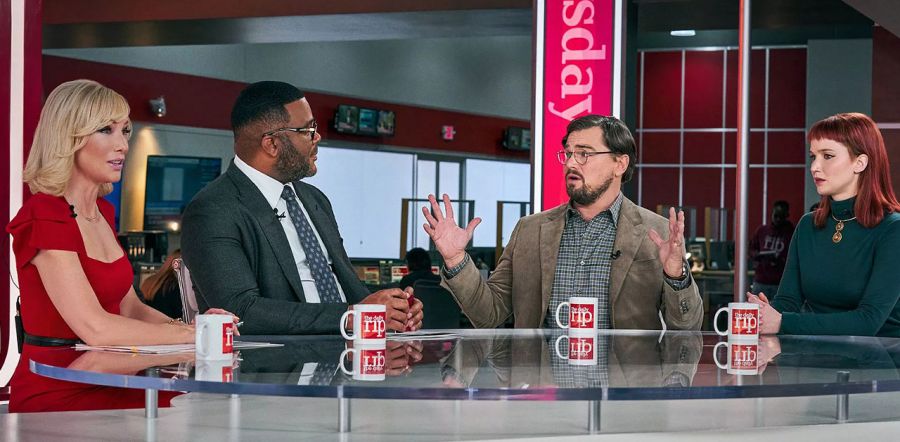
How to Sustain Talking About Sustainability
There is a memorable scene in Don’t Look Up in which Leonardo DiCaprio’s character is so frustrated that he has a breakdown while being interviewed on live TV. The otherwise mild-mannered scientist unleashes a furious tirade, attacking the establishment’s denial as a comet approaches to destroy planet earth.
Whether or not Adam McKay’s satire makes good cinema is not the point of this piece, but it accurately captures that pervasive sense of climate change denial and troubling inaction we see today. I sat next to Leonardo in Glasgow during COP26, and I can assure you of his presence. He appears larger than life—a tall, towering figure, above and beyond what you have seen in movies. I am not an A-list actor so I may not be as convincing, but as an advocate for sustainability, it’s still bewildering to me how vocal climate change denial and skepticism can be despite overwhelming evidence about the true state of our planet.
The Internal Resistance
It is now regarded as a scientific fact that human activity has been the main driver of climate change. The last seven years have been the hottest years on record, with CO2 levels hitting new highs in the past year. The level of methane in the atmosphere is rising faster than it ever did in the last two decades.
And yet, even when faced with scientific evidence, there is alarming indifference to the climate crisis. I’ve experienced this first-hand while striving to raise awareness and galvanize the business community to foster responsible and sustainable practices so that profits don’t come at the expense of the planet.
When I first started talking about sustainability there was a lot of resistance among audiences. Even the company engineers were unwilling to listen. I was repeatedly asked, “Is this what the consumer really wants? Really?”
Yes, of course it is. The idea that the consumer is a heartless, cold figure has never been true. If they have the right information and access to affordable technologies, then most consumers will opt for the sustainable choice.
Despite the clarity of these concepts, and the undeniability of our impact, it took several decades for the business community to come to a place of responsible action.
There is no mountain high enough
It was that indifference that pushed me to take on this issue as a personal challenge. For years, I had been vocal about sustainability and sustainable businesses, but the audience would often lose interest. There was widespread assumption that the climate crisis was “the problem of the next generation.”
This is why, I challenged myself to climb Everest to raise awareness and highlight that it is our responsibility—regardless of age—to take action on climate change.
The experience was moving and shaped my views so much that I ended up writing about it. A Mountain to Climb, my upcoming book, is an account of my journey to the top of Everest and how it has changed my understanding of the climate crisis, including how businesses can be a force for good.
Open mind, open heart
At COP26 in Glasgow, I had the chance to meet many inspiring climate activists, to talk with them and hear their take on the issue. I found their commitment and passion inspiring, and our discussions raised many key issues including how to ensure business sustainability. I explained to them that unplugging entire economies is not a viable solution, and that we can achieve a net-zero future by transforming businesses, not eradicating them. It is essential that the business community understands that the urgency of the climate crisis calls for transformative action. And that requires collaboration, harnessing technology and moving funds to the right cause.
I’ve spoken to hundreds, maybe thousands of people on the climate crisis over the years. I am not tired, or doubtful. I’ve seen substantial change in the attitude of world leaders, business leaders and even the consumers. You can go ahead and have a meltdown on live TV, but the next day you have to find a renewed conviction, fold up your sleeves and begin again.
I do it every day.
